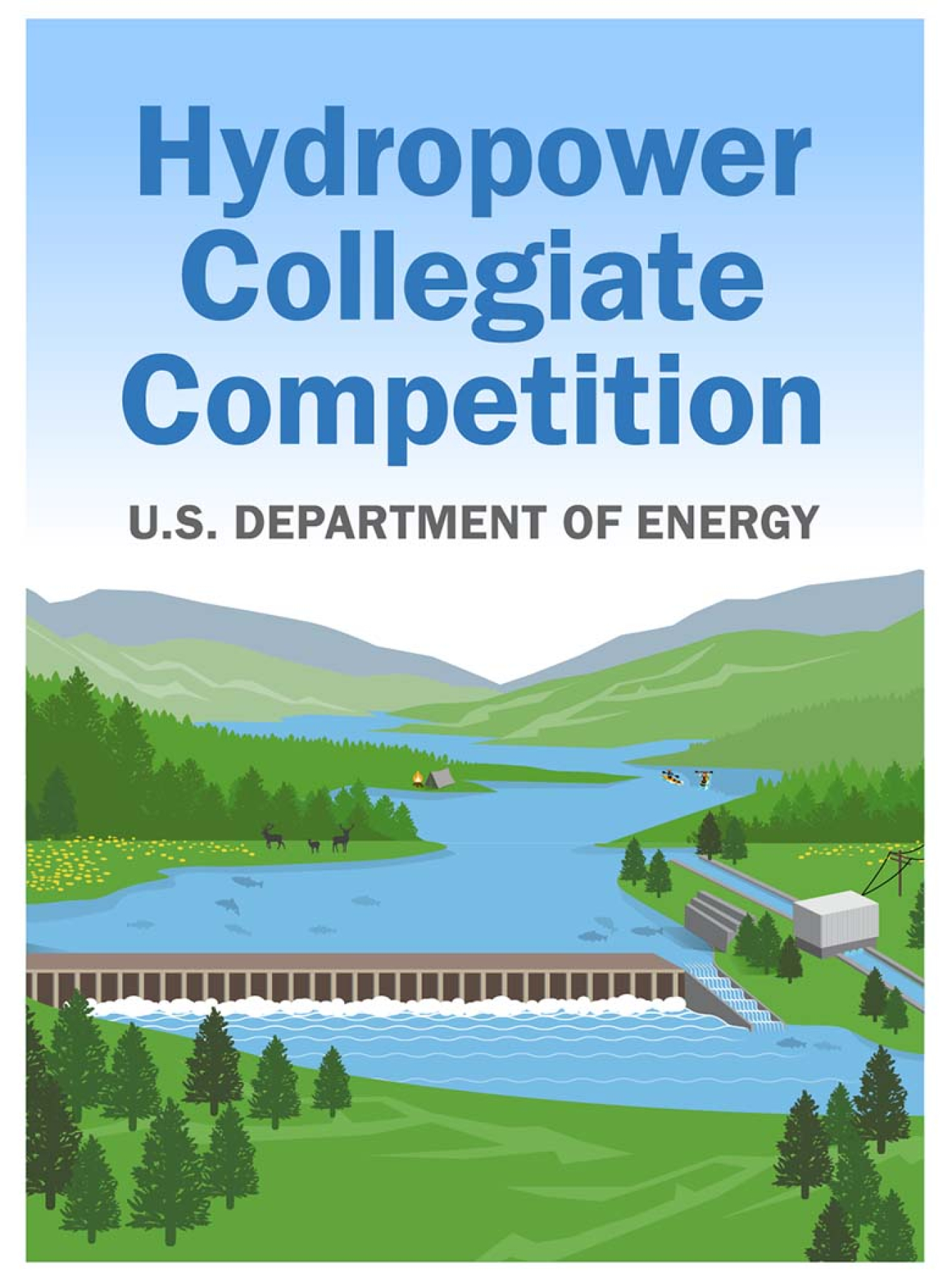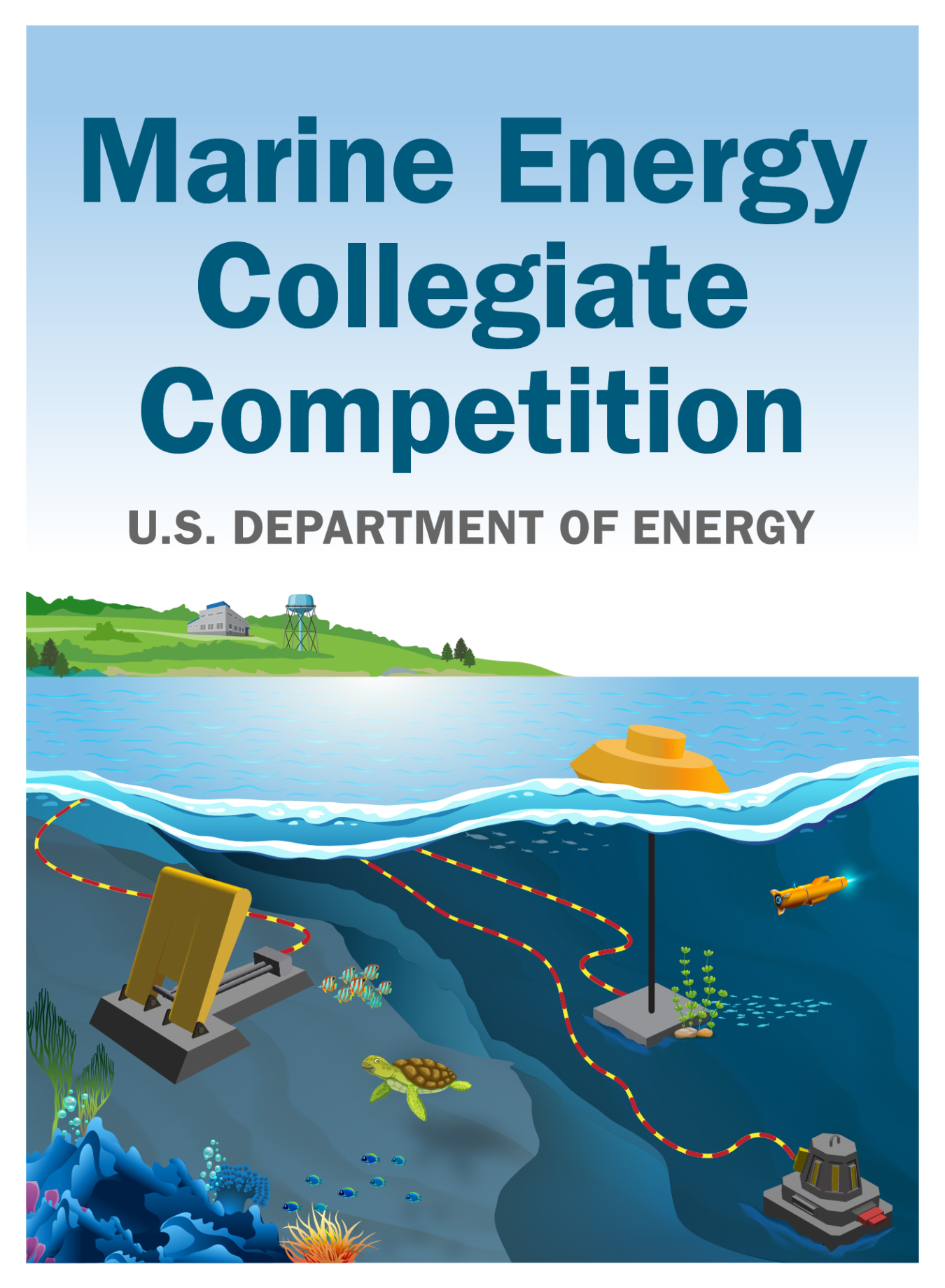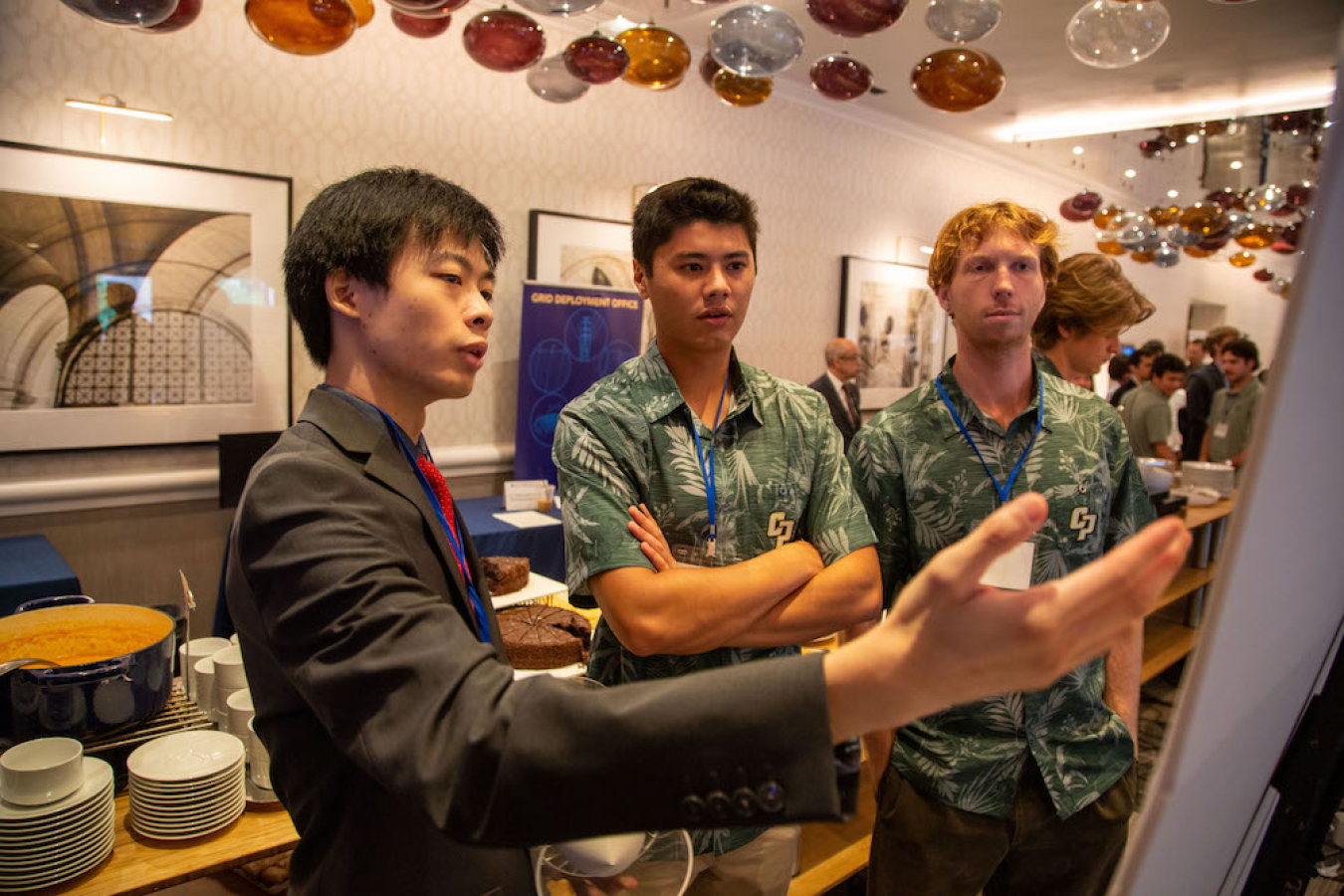The Water Power Technologies Office opened applications for the 2025 Hydropower and Marine Energy Collegiate Competitions, which engage and educate students about real-world challenges facing these sectors and career opportunities in water power.
Water Power Technologies Office
March 22, 2024The U.S. Department of Energy’s Water Power Technologies Office (WPTO) today opened applications for the third annual Hydropower Collegiate Competition (HCC) and sixth annual Marine Energy Collegiate Competition (MECC). The two competitions engage and educate students about real-world challenges facing these sectors and the many career opportunities in water power with the goal of encouraging the next generation to join the hydropower and marine energy workforces.
Hydropower and marine energy are versatile sources of renewable energy that will play key roles in meeting the country’s clean energy goals. However, these sectors need a skilled and robust workforce to ensure they fulfill that role. The HCC and MECC ask students to develop solutions to complex water power challenges and offer students access to real-world experience and professional connections that can give them a head start in a clean energy career.
“These competitions offer students so many benefits, from resume-boosting experience to industry connections to a chance to envision themselves in a water power career,” said Beth Hartman, WPTO’s Strategic Innovation and Outreach Program Manager. “We hope that participants are challenged and inspired by all the potential in hydropower and marine energy presented through these competitions.”
To give students even deeper connections in the fields of hydropower and marine energy, each competing team will now be paired with an industry mentor. With this new competition component, students will have the opportunity to build working relationships with industry experts who can provide real-world experience, technical expertise, career advice, and other insights into how to navigate the industry.
To apply, competitors must submit a short description of their team, their educational goals, and how they will ensure diversity within their team, among other details. See the official HCC rules and MECC rules for complete submission requirements. Teams do not need to be fully formed to apply; faculty can register by the deadline and finish filling out their teams later. Interested teams can apply through the HCC and MECC websites. Applications for both competitions are due May 6, 2024.
Submissions will be reviewed by a panel of experts, and WPTO expects to notify teams that qualify for the competition in May 2024. Competition activities will begin during the fall semester.

Hydropower Collegiate Competition
During the 2025 HCC, teams will either develop solutions to convert non-powered dams to hydroelectric dams that can produce between 100 kilowatts and 10 megawatts of power or assess closed-loop pumped storage hydropower systems that can provide between 8 and 24 hours of energy storage.
Teams will be required to complete three challenges and may choose to participate in two other optional challenges.
Required Challenges
- The Siting Challenge, where teams perform a site selection process and then develop a feasibility assessment for the selected site.
- The Design Challenge, where teams either create a conceptual design of their selected site or complete a final design for a component or system related to the development of their selected site.
- The Community Connections Challenge, where teams conduct outreach with the hydropower industry and a community of their choosing.
Optional Challenges
- The Build and Test Challenge, where teams build and test a scaled prototype of a component of their hydropower site or system.
- The Cyber in Hydro Challenge, where teams will respond to a case study challenge that involves cybersecurity issues.
Teams competing in all three challenges and who complete all required stages will be eligible for up to $15,000 each in cash awards and will compete for part of the $25,000 grand prize cash pool. Teams competing in the Build and Test Challenge will be eligible for an additional $5,000 cash prize each, and those competing in the Cyber in Hydro Challenge will be eligible for an additional $2,000 prize. The scores that teams receive in the optional challenges will not count toward their overall final score.

Marine Energy Collegiate Competition
The 2025 MECC asks multidisciplinary teams to integrate marine energy with blue economy applications such as ocean-powered autonomous vehicles, aquaculture, and desalination.
Teams will compete in four challenges:
- The Business Plan Challenge, in which teams identify a promising blue economy market and determine the best marine energy device to serve that market’s needs.
- The Technical Design Challenge, in which teams design a marine energy-powered device to serve consumers within the team’s chosen market.
- The Build and Test Challenge, in which teams build and test a scaled prototype of their concept.
- The Community Connections Challenge, in which teams engage with the marine energy industry and a community of their choosing.
Competing teams that submit all required MECC challenge materials will be eligible for up to $20,000 in total cash awards. They will also be eligible to compete for a part of the $20,000 grand prize cash pool.

Eligibility and Next Steps
Undergraduate and graduate students from post-secondary institutions—including colleges, universities, community colleges, and trade schools—are invited to compete in both competitions. Students from non-U.S. institutions are welcome to apply but are not eligible to receive prizes. HCC and MECC applications do not require initial research or engineering.
While the application period has just begun for the 2025 HCC and MECC, this year’s competitors are prepping for their final events. The 2024 HCC final event will take place in conjunction with the National Hydropower Association’s Midwest Hydro Users Group Meeting in Des Moines, Iowa, on April 29–May 1, while the 2024 MECC final event will happen at Pacific Ocean Energy Trust’s Ocean Renewable Energy Conference in Portland, Oregon, on May 20–23.
Both competitions are funded by WPTO and administered by the National Renewable Energy Laboratory (NREL). The HCC is also administered by the Hydropower Foundation in partnership with NREL.
Learn more about science, technology, engineering, and mathematics (STEM) careers and workforce development opportunities on the Hydropower STEM Portal and Marine Energy STEM Portal.
Sign up for email alerts to keep up with the latest on HCC, MECC, and other water power workforce development news. Or subscribe to the bimonthly Hydro Headlines and Water Column newsletters, as well as the monthly Water Wire newsletter, to receive the latest information on funding opportunities, events, and other news.

